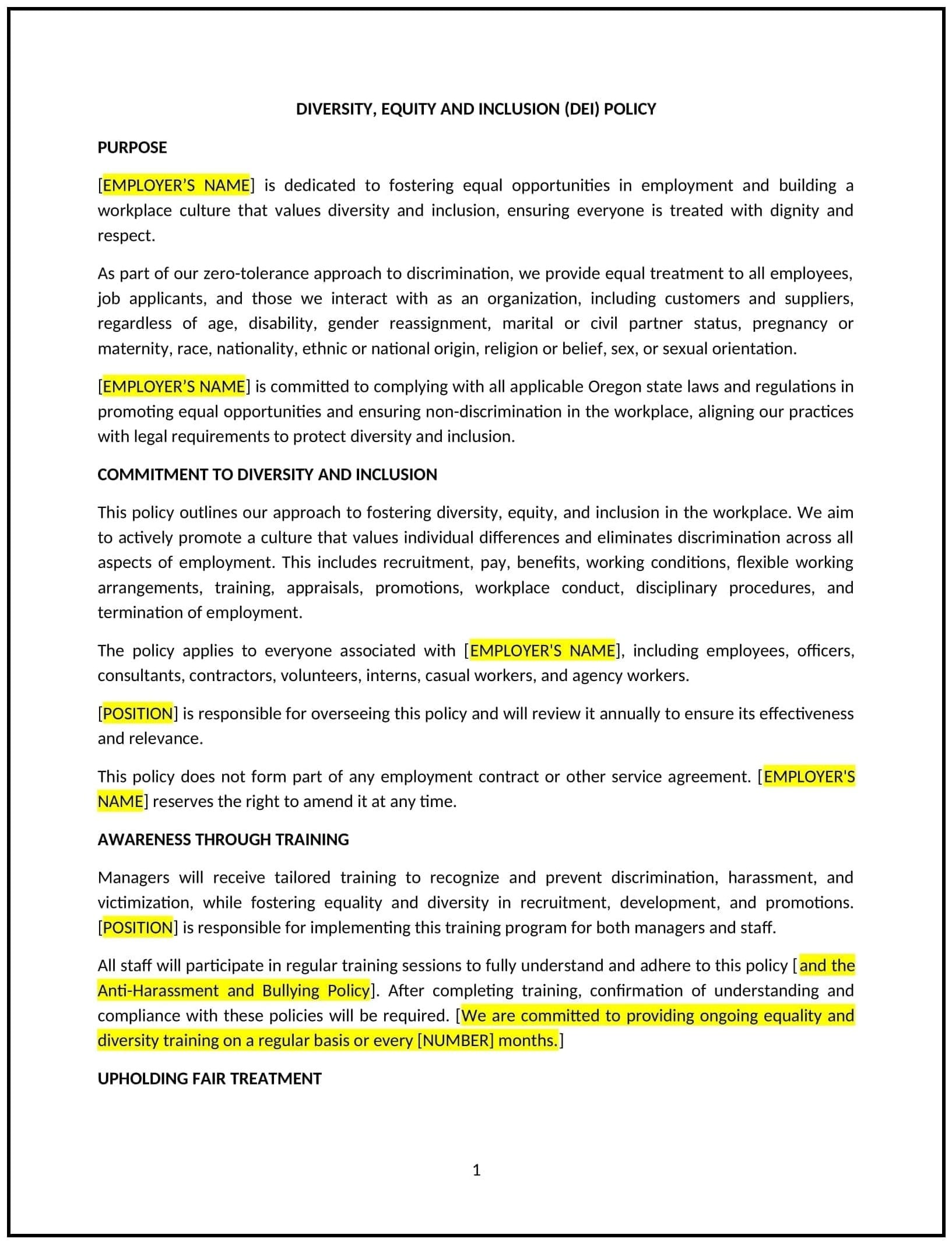Diversity, equity and inclusion (DEI) policy (Oregon): Free template
Got contracts to review? While you're here for policies, let Cobrief make contract review effortless—start your free review now.

Customize this template for free
Diversity, equity and inclusion (DEI) policy (Oregon)
This diversity, equity, and inclusion (DEI) policy is designed to help Oregon businesses create a workplace that values and respects individuals from all backgrounds. It outlines commitments to fostering diversity, ensuring equity, and promoting inclusion in hiring, promotions, and workplace culture.
By adopting this policy, businesses can build a more innovative and collaborative workforce, enhance employee engagement, and align with best practices for workplace diversity.
How to use this diversity, equity and inclusion (DEI) policy (Oregon)
- Define DEI principles: Explain the importance of diversity, equity, and inclusion in the workplace.
- Establish hiring practices: Outline steps to ensure fair and unbiased recruitment, such as diverse interview panels and inclusive job descriptions.
- Promote equitable opportunities: Provide guidelines for fair access to training, promotions, and career development.
- Foster an inclusive culture: Encourage open communication, respect, and collaboration among employees.
- Train employees and managers: Educate teams on DEI principles, unconscious bias, and inclusive behaviors.
- Monitor progress: Regularly assess DEI initiatives and track key metrics, such as workforce diversity and employee satisfaction.
- Update regularly: Review the policy annually to align with evolving business needs and societal expectations.
Benefits of using this diversity, equity and inclusion (DEI) policy (Oregon)
This policy offers several advantages for Oregon businesses:
- Builds a diverse workforce: Attracts talent from varied backgrounds, enhancing creativity and innovation.
- Promotes equity: Ensures fair treatment and opportunities for all employees, regardless of their identity.
- Fosters inclusion: Creates a workplace where employees feel valued, respected, and empowered to contribute.
- Enhances employee engagement: Improves morale and retention by supporting a positive and inclusive culture.
- Aligns with best practices: Demonstrates a commitment to DEI, which can enhance the business’s reputation and competitiveness.
Tips for using this diversity, equity and inclusion (DEI) policy (Oregon)
- Communicate the policy: Share the policy with employees and include it in the employee handbook.
- Provide training: Educate employees and managers on DEI principles, unconscious bias, and inclusive behaviors.
- Set measurable goals: Establish clear objectives for DEI initiatives, such as increasing workforce diversity or improving employee satisfaction.
- Encourage feedback: Create channels for employees to share their experiences and suggestions for improving DEI efforts.
- Monitor progress: Regularly assess DEI initiatives and adjust strategies as needed to achieve goals.
- Update regularly: Review the policy annually to align with evolving business needs and societal expectations.